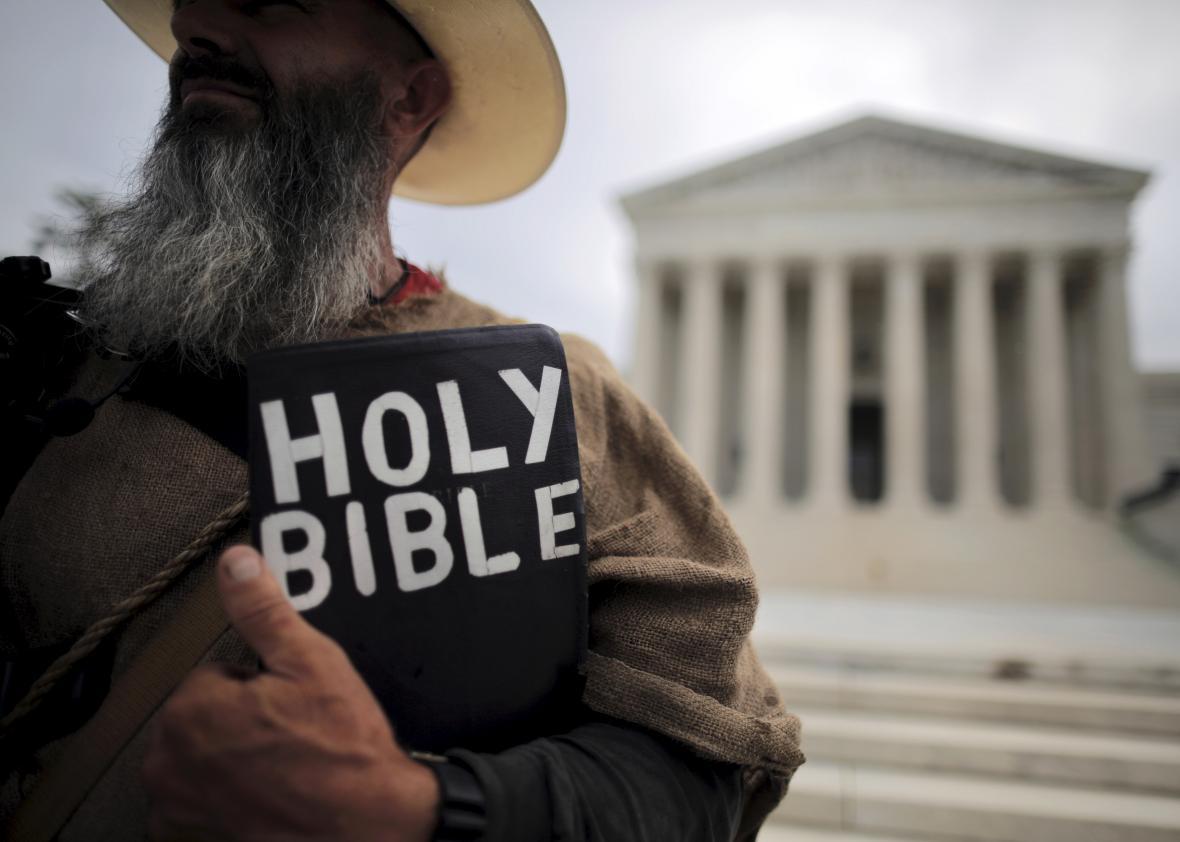Dr. Diane Horvath-Cosper made headlines this month by suing her hospital, the MedStar Washington Hospital Center in Washington, D.C., for prohibiting her from advocating publicly for abortion. Thus far, pro-life conservatives have largely remained silent about Horvath-Cosper’s crusade. That is odd. The religious right should be cheering Horvath-Cosper, because her crusade is a quintessential example of religious liberty laws in action.
A bit of background: Horvath-Cosper is suing under a federal statute, the Church amendment, which was passed in the wake of Roe v. Wade with the stated intent of protecting doctors’ freedom of conscience. Specifically, the Church amendment forbids hospitals that receive federal funds from discriminating against any doctor “because of his religious beliefs or moral convictions respecting sterilization procedures or abortions.” This provision is most often used to shield doctors who oppose abortion. But the law is clearly two-sided: It also protects doctors who support abortion and bars hospitals from punishing them for their advocacy or silencing their speech.
Does this language about protecting “religious beliefs or moral convictions” against retribution sound familiar? It should: It is virtually the exact same language that is currently being deployed in anti-LGBTQ religious liberty bills across the country. These laws began with an exclusive focus on “religious freedom,” but they have since grown broader, importing the Church amendment’s “moral convictions” supplement. In today’s “religious freedom” bills, the morality addendum has become a necessary ingredient. A GOP-supported bill in Virginia would have allowed private businesses and government agencies to turn away gays based on their “moral convictions.” A new Mississippi law allows businesses, landlords, and government officials to refuse service to LGBTQ people based on their “sincerely held religious belief or moral conviction.” An anti-LGBTQ Georgia bill boasted identical language. A recently enacted Tennessee law allows mental health counselors to reject LGBTQ patients if treating them would violate their “sincerely held principles.” And so on.
Throughout the “religious liberty” battle, anti-LGBTQ advocates have insisted that freedom of conscience is an inviolable fundamental right and that no individual should be proscribed from living out and acting on her beliefs. Preserving (their own twisted vision of) religious liberty is good for everyone, they insist, not just the anti-LGBTQ, anti-abortion right. If that’s true, then now is the opportunity to prove that the modern “religious liberty” crusade is not just a duplicitous effort to pass discriminatory laws under the guise of moral rights. Anti-abortion conservatives should be cheering Horvath-Cosper’s efforts to vindicate her freedom of conscience and preserve her ability to express her deeply held beliefs. Anything less will only further the growing consensus that the sudden enthusiasm for religious liberty on the right is little more than a campaign of anti-LGBTQ, anti-woman bullying.
